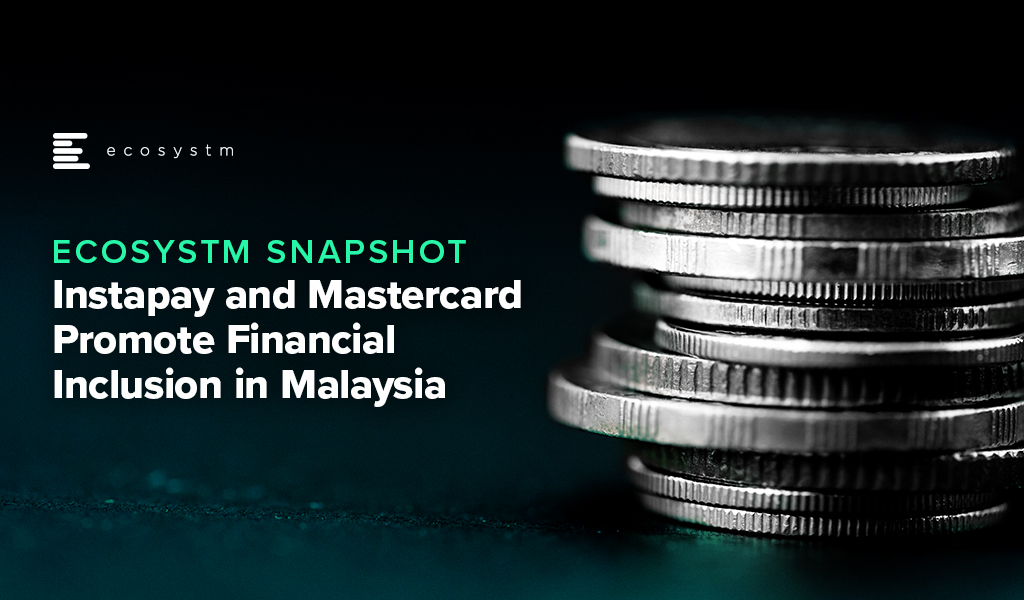In the blog, The Top 5 Fintech Trends for 2020, we had spoken about the impact of Fintech on financial inclusion. “Fintech will have a much greater impact than we realise, and we will continue to see it drive the induction of the unbanked into the mainstream economy. The growth in mobile phone penetration, however, continues to grow at a faster pace than banking accessibility across emerging economies. We will continue to see Fintech play a significant role in driving greater inclusion, especially to bring in the underserved in the emerging economies and reducing the gender gap when it comes to adoption of financial services – creating greater inclusion overall.”
Fintech Driving Financial Inclusion in Malaysia
Much of Malaysia’s economy is dependent on foreign workers with an estimate of 3-4 million migrants that roughly contribute to about 30% of the country’s labour force. Instapay, regulated by the Bank Negara Malaysia (BNM), caters to the underbanked community of foreign migrant workers, and recently announced a collaboration with Mastercard, to provide e-wallet accounts to Malaysian migrant workers. The app supports 9 languages and aims to have 100,000 users in the first year.
The widespread use of e-wallets by the migrant worker community is meant to bring benefits to both them, as well as their employers. It enables employers to use digital technologies for payroll management, reducing their dependence on cash handling, reducing costs and eliminating downtime as their employees no longer need to queue up on paydays.
The Instapay e-wallet also gives a largely underbanked segment of the society access to affordable financial products and services. The partnership with Mastercard gives Instapay’s customers access to the global network of merchants and ATMs, allowing easier access to financial services.
Ecosystm Principal Advisor, Dheeraj Chowdhry says, “Instapay’s foray into e-wallets furthers and supports the country’s objective of democratising banking and moving to a cashless economy. Collaboration with an international player like Mastercard helps a domestic Fintech to deliver a product that is country agnostic. The migrant worker can not only use the Instapay wallet within Malaysia but also in their home country.”
Malaysia’s Focus on Fintech
The Malaysia Government aims to create a cashless society, lower transaction costs and provide access to the underserved customers. There are two kinds of financial inclusion – for the lower income group as well as for the small and medium enterprises (SMEs) – and Malaysia is committed to both. Digital payments and e-wallets aimed at the lower income group receives an estimated 36% of Fintech funding. The stumbling block is that about a third of the country’s population does not have smartphones, so funds transfer using mobile phone messages is still relevant in the country. Development of the SME sector and eCommerce are twin focus areas for the Digital Economy vision. This provides a ready market for digital payments. Also, while the SME community will still have access to traditional funding, there is expected to be a greater push towards crowdfunding and peer-to-peer financing. It is expected that the share of Fintech funding for alternative funding will grow beyond the estimated 6% that it receives now.
According to a Mastercard Impact Study 2020, Malaysia has the highest e-wallet usage in Southeast Asia. As the country moves towards creating a cashless society, the Government is hoping e-wallet adoption increases. Several initiatives and schemes have been rolled out to promote e-wallets adoption. Last month, Malaysia announced the intention to spend an estimated USD 176 million in 2020 to encourage e-wallet adoption. Earlier this year, the Government announced the e-Tunai Rakyat program to boost the adoption of e-wallets, supported by Grab, Boost and Touch ‘n Go. Chowdhry says, “Instapay e-wallet is yet another manifestation of the amplified focus on e-wallets in Malaysia. BNM has set aside an estimated USD 108 million and has introduced a scheme to give USD $7.25 in credit for every adoption of any of the top 3 e-wallets. This scheme has accelerated e-wallets in the country that has set an adoption target of 15 million i.e. half of its population.”
“This push is backed by a structured approach of increasing the number of small merchants accepting card payments. With BNM’s focus, there are as many as half a million POS terminals out there for both credit cards and QR codes.”
“Malaysia’s regulators have to be applauded for having a well-coordinated, holistic and converging strategy on creating a cashless economy. The issuance, acceptance and regulatory policies have been completely synergised to deliver.”


